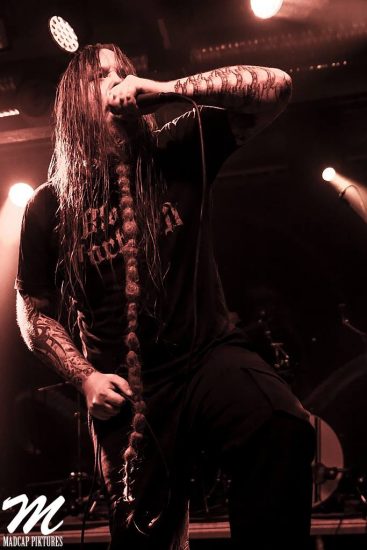
Photo by Mattias Nilsson/Madcap Piktures
(Not long ago Andy Synn launched a regular Saturday series at our site called Waxing Lyrical, devoted to discussions with metal musicians about the lyrics of their songs and the process of creating them. That inspired Norway-based NCS contributor Karina Noctum to pose similar questions to Swedish musician Johnny Pettersson, and you’ll find his answers below, following Karina’s introduction.)
Musician Jonny Pettersson from Sweden has been prominently featured here on NCS with many of his bands. He is pretty active and some of his most-known bands are Syn:drom and Wombbath. Other projects of his are Just Before Dawn, Ashcloud, Gods Forsaken, Henry Kane, and Ursinne, to name a few.
With such a vast discography this article will focus primarily on his Swedish DM band Wombbath, whose latest release was a split with Germany’s Obscure Infinity called Upward On A Thousand Lies (Wombbath’s side was premiered here), but with attention also given to Henry Kane, which soundwise is in the same vein but tending more toward grind, and last but not least to Gods Forsaken, a DM project with a mix of mid- and fast-paced parts. It is definitely recommended for fans of Bloodbath, Dismember, and old At the Gates. An interview about Gods Forsaken conducted by Decibel Magazine can be found here.
Inspiration & writing
I get inspiration from books, films, everyday life and struggles. Sometimes I can hear a quote and it gives me enough to come up with lyrics for a song. I try not to think of the lyrics as genre-specific, but I do realize that being a huge extreme metal fan, I will get inspired by that.
I try to make my lyrics as good as possible. Make them have a good flow and tell a good story. And if you have that I don’t think there is a need to be super original. Don’t get me wrong, few things are more tedious than, for example, lyrics about fucking corpses, rape, and just mind-numbing “I am more brutal and shocking than you” stuff, which seems to be the theme of every other brutal death album these days. But then again that’s just my personal view. I bet some slam fan thinks my lyrics are the shittiest thing they’ve ever heard, so it’s all down to personal preference.
I write in Swedish in addition to English. The biggest difference between writing in two different languages is the limitations of writing in a second language. You might only know one way of saying something in English, but several ways of saying it in Swedish. So, in a sense you can go way more in-depth with lyrics in your native tongue. The same goes for bending the words in a way so they fit the rhythm of the song. And as with most languages, some things just don’t translate well to English.
Wombbath
The lyrical themes for Wombbath are based on old Swedish folklore. Swedish folklore can be very different depending where in the country the lore originates from, especially ones that originate in Medelpad where I grew up. You can find a lot of these stories in Swedish folk music, and looking at where they found their inspiration, you can find an abundance to draw from. “Underneath the Rotten Soil”, for example, is based on a story about a man who fell in love with a being of the forest. The being tricks him into killing his wife and children, only to drown him in the river at the end.
A quite common one that exists in all of Scandinavia and even Germany is “näcken” or “nøkk”, which tells the story of water spirits who play enchanted songs on the violin, luring women and children to drown in lakes or streams. As kids we were warned against näcken, as a way of keeping us away from lakes and rivers. My grandad was a “spelman”, which is a folk musician who would travel all over and play for food and drinks. He ignited my interest for old lore, as a lot of the songs he would play would tell a story of creatures both malevolent and helpful.
I grew up quite far out in the countryside, so the busses were far apart, and a way to make time pass while waiting was to go to the local library to read about all these old stories. A lot of them were a way of warning people from going into the forest alone, or to go near rivers or moors. Or it could be a way to describe things like nightmares, which were said to be caused by mares — a wolf-like creature that would ride on a person’s chest while they are sleeping, or even take the sleeping’ s souls, to make leave their body at night to haunt the living. So, with Wombbath I try to tell these stories in my own way. I tend to lean towards the malevolent side of things, using fear, pain, and death as the main ingredients.
Henry Kane & Gods Forsaken
With Henry Kane, the lyrics are based on the darker things in life — abuse, addiction, mental health — and tell stories of self-destruction in one way or another. How society turns its back on those who needs it the most. With each song I try to paint a picture of how it can be from the abuser’s point of view, or from the person getting abused. Some songs go very in-depth and personal, which is why I ended up doing all the lyrics in Swedish. The new album will have a few in English as well, as they are leaning towards anger and frustration. Equally as personal, but they worked just as well with the English language.
With the horror-based lyrics, I try to tell a story. It can be from the victim’s point of view, or from the view of the abuser. One of the songs is about a guy who wakes up each day thinking that he just had a bad dream about killing his family, only to realise that it wasn’t a dream. Another one tells the story of a man being haunted by a malevolent entity, and we see the whole story from his point of view. I am very inspired by the horror fiction magazine Weird Tales, and, as with many others in death metal, by HP Lovecraft.
The way of telling the stories in a first-person perspective appeals a lot to me and is something I try to do. Obviously, you are quite limited as far as song lyrics go. They must fit with the song, both in length and pronunciation and rhythmically. But I like the challenge to make it work. With Gods Forsaken the lyrical theme is 100% horror as well, and based on horror movies and books. No song is based on any specific movie or book, but it’s more trying to paint our picture of what we perceive to be horror.

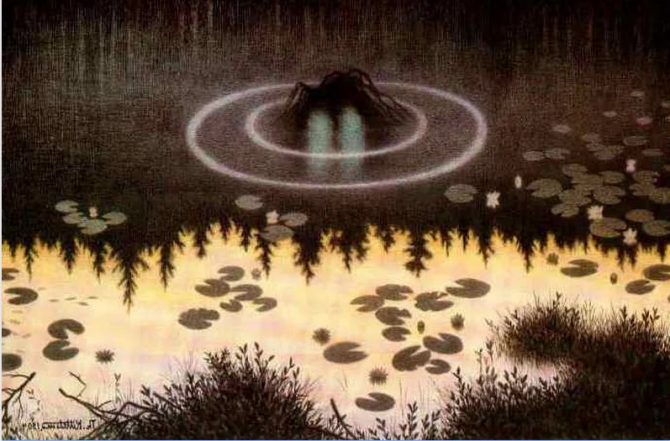
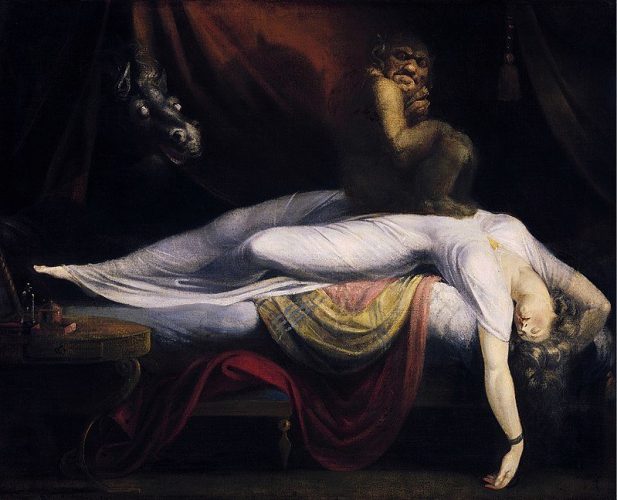
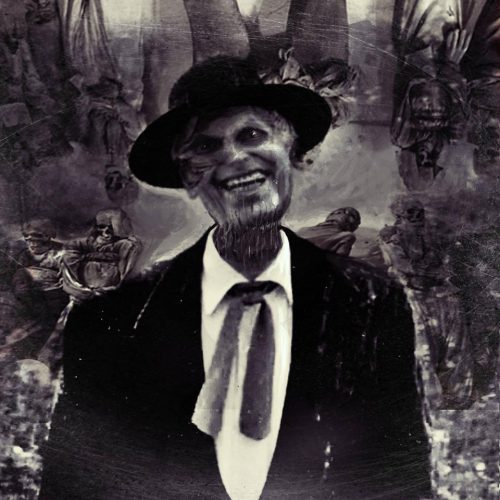
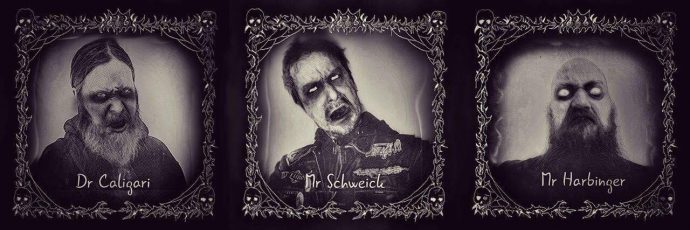
Great to read this interview. Jonny is a true talent.